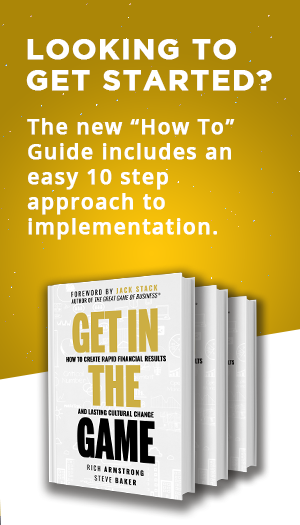.png?width=1200&name=qualbe%20(5).png)
MiniGames™ are a fun, engaging way to correct a weakness or pursue an opportunity in your business. They get teams focused on the same goal and moving in the right direction, while also reinforcing business education, building teamwork, and creating a culture of winning.
Great Game practitioner Qualbe Marketing Group started playing MiniGames two years ago, and their award-winning team has experienced impressive operational and cultural improvements as a result.
Qualbe, a digital marketing, sales and technology firm based in the Dallas-Fort Worth area, is the home of the national 1Dental brand, a top dental insurance alternative. They credit the principles of the Great Game of Business with helping them achieve their goal of outstanding organizational growth. Along the way, their MiniGame successes and challenges have provided them with several practical lessons from the field any Great Game practitioner can benefit from.
1. Don’t Neglect the “Pre-Game Warm-Up”
“Okay guys – are we going to cut costs or generate revenue?”
The digital marketing team manager looked around the room waiting for an answer.
Several ideas were brought up – making systems more efficient, automating processes, cutting cost per client…
“Hey, wait... Do we know how much we’re spending per client?”
“Yeah, let’s check the time-tracking system!”
A team member pulled up a number on his computer screen: 14%.
Only 14% of our time was being attributed to specific clients. Obviously that was inaccurate! But time tracking was often the last thing on our minds. We had a great time-tracking tool called Toggl, but we were failing to log hours under specific categories.
To quote our clients with better accuracy and gain a more precise understanding of what certain services REALLY cost, we decided to play a time-tracking MiniGame.
Our goal? To get our time-tracking as close to 100% accuracy as possible over the course of three weeks.
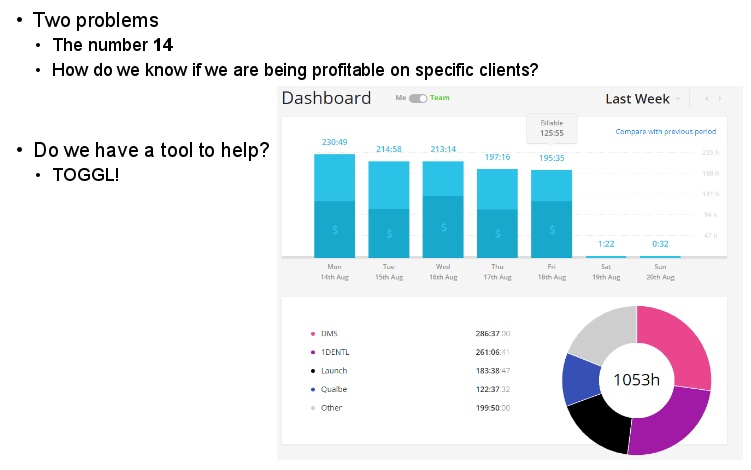
It may seem simple, but habits can be hard to break! Recent research suggests that people usually need around two months to change a habit…
We realized that in order to play a game that had a direct impact on our bottom line, we would need to more accurately measure how we were allocating and billing our time.
So we embraced the pre-game warm-up. Our first MiniGame was called “The Sands of Toggl” and it was a success! Over the course of three weeks, our tracking accuracy went from 14% to 93%!
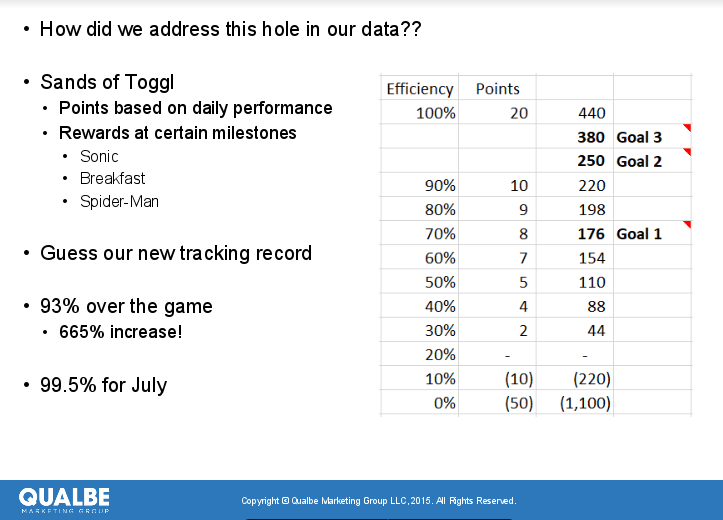
We didn’t stop there, either. The following month after completing this first MiniGame, our time-tracking accuracy went all the way up to 99.5%! That’s the encouraging part: this time-tracking accuracy continued and even improved after the MiniGame was over.
Because we didn’t rush into things but set ourselves up for success with the “pre-game,” we now have a much more accurate picture of how we are spending our time, enabling us to quote clients correctly and have a full picture of where our resources are going.
Think about your behind-the-scenes tracking. Do you need to make a “pre-game” like this before designing a MiniGame that focuses directly on your bottom line?
2. Use Data to Create Your Game
“When you appeal to the highest level of thinking, you get the highest level of performance.” – Jack Stack, The Great Game of Business
We enjoy the challenges of tracking and testing paid search advertising data at Qualbe. In fact, we’ve developed a few in-house tools like BidInsights and GEOSmart that give us an edge on the competition.
Do you know how Google decides how much you pay to place an ad? They look at 1) how useful your ad is to the customer, 2) how fitting your landing page is to that customer (did they actually make it to the page, did they stay on the page, did they leave immediately) and 3) the overall experience they have on your page.
This is how Google arrives at your “quality score.” If your advertisements, landing page and website are poor quality, you’ll have to bid a LOT on certain keywords to get your advertisements to show. However, if Google genuinely thinks you’re the best guy out there to meet the customer’s needs, you’ll pay less.
It’s like Google Dating. Seriously, G-Harmony is probably going to be a thing in the future – Google already knows everything about us anyway; it could probably be the Matchmaking King if it got into the business!
Think of it this way: You’re a good guy, but you’d rate yourself a “5” out of "10". Let’s say you want to take out a girl who’s a Perfect 10. It’s a long shot, right? But if you work on improving yourself a bit – get some interesting experiences and hobbies like in The Secret Life of Walter Mitty and become 'The Most Interesting Man in the World' – you’ll have a better chance of going on a date with your dream girl!
Our 1Dental team took a look at increasing revenue or decreasing costs and decided to work on increasing the quality score of our advertising landing pages. We wanted to be Walter Mitty in Iceland, not Walter Mitty in the office building.
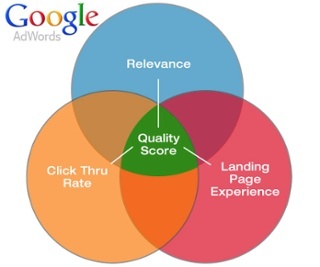
Source: Etchrock.com
A look at the data told the 1Dental team that they were spending a LOT on pay-per-click (PPC). They know that you have to invest a lot to see results with PPC (a few dollars a day just won’t get you any leverage), so it’s not necessarily that they wanted to spend less – it’s that they wanted to figure out a way to achieve even GREATER results for what they do spend. And if they can achieve greater results while ALSO spending less, so much the better!
The dental team took a look at the 1Dental landing pages and is currently in the process of improving them by analyzing user data and copywriting techniques. By improving landing pages, they hope to increase quality score so that they become a Perfect 10 in Google’s eyes, thereby lowering the amount spent on advertising.
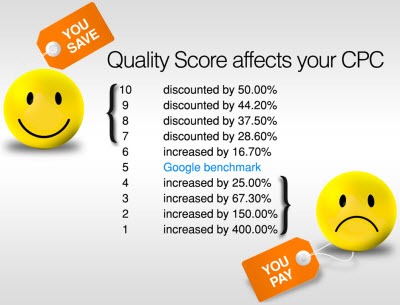
Source: WordStream
As you can see, a Perfect 10 gives you a huge discount on your CPC (cost per click)!
Is there anything you could improve in your ad’s relevance and landing page experience to increase your Google quality score and lower your ad spend?
3. Create a Game That Either Saves Money or Makes Money
“The only way to be secure is to make money and generate cash. Everything else is a means to that end. Those simple rules apply to every business.” – Jack Stack, The Great Game of Business
You’re a squirrel. You’ve got two ways of getting enough acorns during any given season of the year:
In the fall, it’s not just leaves that fall from the trees. Acorns are plentiful, and you don’t have to work as hard for them. Gather away! Go nuts (couldn’t resist).
But in the winter? You’d have to work a LOT harder to find the same amount of acorns. You’d have to travel for miles to find just a couple. So it’s better to lie low, conserve your energy and eat acorns you’ve already stowed in the tree for just this season.
Business has seasons, too. There are seasons of growth, and there are seasons of lying low, regrouping and focusing on using the resources you’ve already accumulated.
In each business unit, create a MiniGame that somehow cuts down the amount of work you have to expend gathering your acorns during the fall, or make storage more efficient during the winter. All of our MiniGames include at least one of these aspects, but sometimes you can even come up with a MiniGame that does both!
4. Make It Fun
One of the key rules needed to win in the game of business growth is to have fun! If you’re like most people, you probably work 8 or 9 hours a day. You should be able to squeeze some fun in there. Prizes should be given for achieving goals, and they should be good.
How would you like to get shaved ice, have a luau party and see your boss dress up as a hula dancer? Sounds fun, right? Those were the three selected prizes for our contact center, which is in charge of sales and customer service, if they reached the goals they set for their first MiniGame.
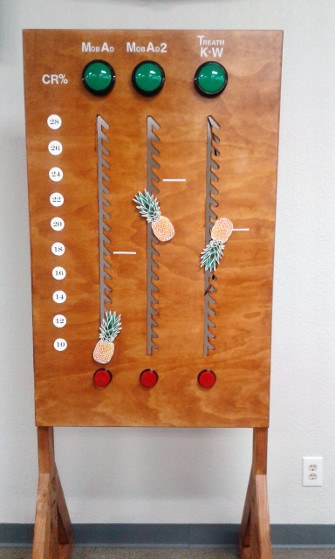 One Qualbanian even made a fun board with pineapples to track goal progress toward the shaved ice, luau and hula dancing
One Qualbanian even made a fun board with pineapples to track goal progress toward the shaved ice, luau and hula dancing
(Wait, why is one of the pineapples on the board upside down?? We may never know...)
They encouraged a fun environment by moving the pineapples each day in accordance with their progress and working together as a team. Personally, I hoped they would reach the top goal because it would have been awesome to see the contact center manager dress up and do the hula!
Alas, it was not to be. However, they did achieve an all-time record high for overall conversion rate. So even though it wasn’t technically one of their goals, they celebrated by buying popsicles for the contact center. Still a win for business growth!
5. Set Realistic Timelines
“If you want people to grow, you have to let them take risks, and you have to let them fail.” – Jack Stack, The Great Game of Business
One of our departments had a goal: Get more customer leads.
They really wanted to expand the business, so they wanted to be ambitious, you know? Go hard or go home!
Their goal? Go from 0 to 30 website-generated leads… in one month.
Definitely a “go hard or go home” type of situation. They called their MiniGame “The Shawshank Leademption,” with the goal of “digging” their way to 30 leads.
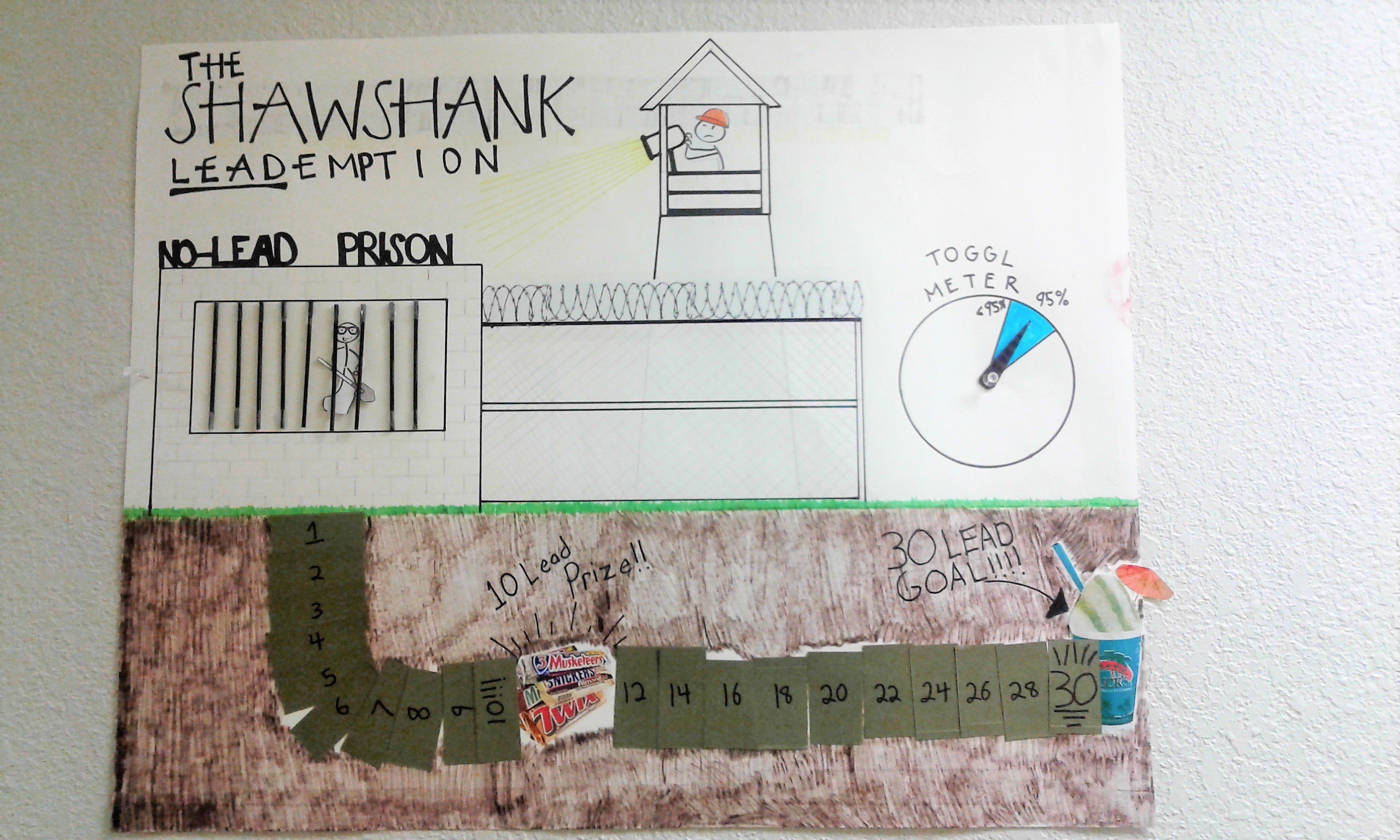
Specifically, the business unit wanted to get qualified leads through their website. Most of their leads thus far had come from business connections or personal referrals.
The thing was, it took them a month just to get set up to play the MiniGame! They had to look at online outreach strategy, SEO, social media strategy, landing pages, social media ads and Google AdWords. Phew!
After about 30 days and fewer leads than they would have liked, they decided to reassess the MiniGame. They realized that it had taken them 30 days just to “acquire the rock hammer” and get their means of achieving the goal in place. (If you’ve seen The Shawshank Redemption, you’ll understand the rock hammer reference. If you haven’t seen it, I won’t explain so as not to spoil the movie).
In short, the timeline was not very realistic, so they admitted that this MiniGame didn't achieve the results they'd hoped for and reset it to be a quarterly game. Time will tell how their MiniGame ends up!
When you set up any game for business growth, set a realistic timeline and achievable expectations. If you “lose” a game, no worries! You have at least learned something about your business unit. Take that knowledge and apply it to the next game for a better chance of winning.
6. Go for Goals that Build Your Team and Build Up the Company
“When people focus on their narrow specialties, the different departments go to war. They don’t function as the parts of one company. They act more like competing factions.” – Jack Stack, The Great Game of Business
As you create your MiniGame, create it in a way that builds up the entire company. You don’t want one business unit to achieve a goal at the expense of another department.
For example, if the sales team wants to increase the number of orders, does it put undue strain on the delivery team? Is the delivery team even able to fill all those orders? These are important considerations.
Huddles can help your company think in a holistic way. Keep these meetings fun! At Qualbe, we have Monthly Marketing Lunches, sales breakfasts (sometimes involving games such as Egg Russian Roulette), weekly meetings and, most importantly, our quarterly Town Hall meetings.
At the Town Hall meetings, each division of the company gives an update. We celebrate one another’s successes together. One division’s success may even mean rewards for the entire company. For example, meeting sales goals last year resulted in a new pool table, sofa and TV in our break room!
The end result of keeping everyone at the company informed of each division’s successes and challenges is a company full of employees that think and act like owners. Jack Stack writes:
"…A company of owners will outperform a company of employees any day of the week. When you think like an owner, you do all the little things necessary to win…. But people will only think like owners if they have a larger purpose, if they are not just working for a paycheck…. People have to see the Big Picture. They have to know what they are doing, why it’s important, where they are going, and how business is helping them get there. Only then will they have the desire to go out and use the tools you provide and play the Great Game of Business to win."
To help your employees catch the vision of the company, determine your company’s “Why.” Simon Sinek pioneered this concept and gives a great explanation of it. Why does Qualbe do what we do, for example? Ultimately, to build up businesses and build up people.
When all of your employees are on board with your company’s “Why” and genuinely feel like what they do contributes to the overall purpose, you’ll be able to minimize factions that arise when each person or department only focuses on what affects them.
7. Play the Long Game, but Celebrate the Little Wins
“Celebrate every win.” – Jack Stack, The Great Game of Business
Let’s go back to our digital marketing services time tracking MiniGame to illustrate this point.
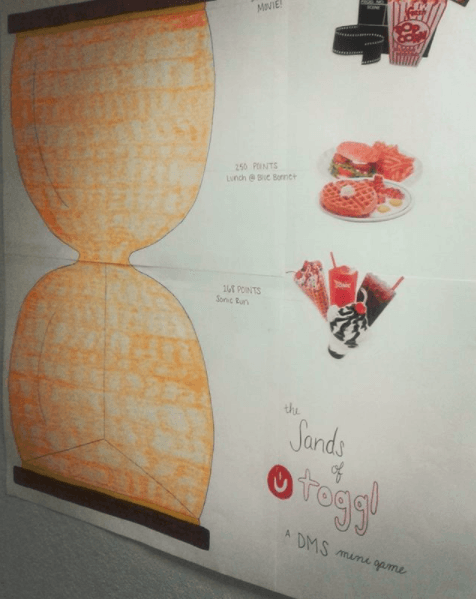
This is our scoreboard for the MiniGame “The Sands of Toggl.” We filled in the hourglass each day, and whenever we reached a goal line, we would celebrate as soon as we could!
On our way to achieve 100% accuracy in time tracking, we still wanted to celebrate the little victories because, well, 75% is a heckuva lot better than 14%!
In your MiniGame, you’ll want to have small prizes along the way. The Great Game of Business encourages making the prizes big on fun and team-building and low on cost.
As you can see on the scoreboard, our prizes included 1. Sonic Drinks, 2. Breakfast at The Bluebonnet Cafe and 3. A Movie (Spider-Man)!
We ended up achieving all three goals.
Getting our Sonic drinks after achieving Goal 1!
This prize cost maybe $2-3 per person but gave us an opportunity to have fun as a team and celebrate the little successes on our way to our big goal.
You want to have as many “wins” to celebrate as possible. I’m not talking about participation ribbons. Don’t give people prizes just because “you is good, you is important.” But if a genuine improvement is made that lays a foundation for achieving a larger goal, go ahead and celebrate!
It seems like sometimes, business leaders are afraid that celebrating the little wins will lead to apathy – as though rewarding small steps will result in lack of motivation for the big goal. But it’s really the opposite. Rewarding a small job well done gives greater motivation and confidence to tackle the bigger challenge looming ahead. Celebrating every win helps workers feel satisfied in their work and empowered to achieve the company’s goals for business growth.
"Management is all about instilling that desire to win. It’s about instilling self-esteem and pride, that special glow you get when you know you’re a winner. Nobody has to tell you. You just feel it. You know it." – Jack Stack, The Great Game of Business
8. Turn Rewards into Team-Building
Our IT department observed that one way they make the company more profitable is through resolving tickets as quickly as possible.
So they created a game with the goal of resolving Low Severity, Medium Severity and High Severity tickets with greater speed. They referenced past statistics to determine what constituted a good amount of time to close the tickets and monitoring time spent on each issue.
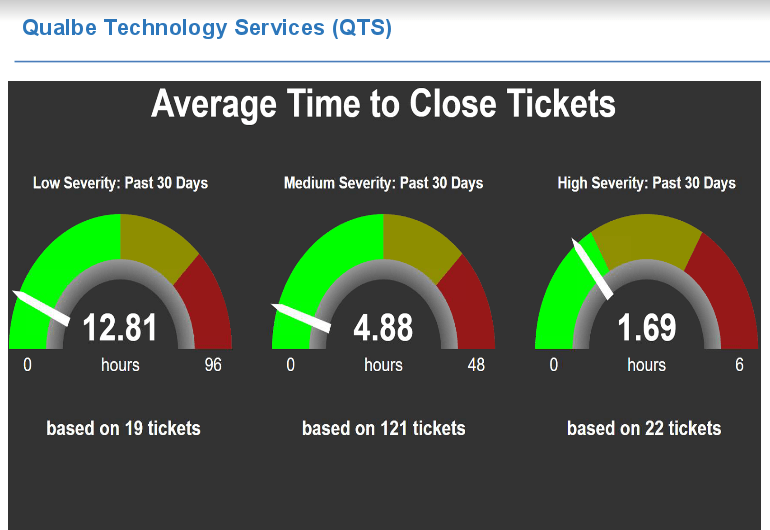
They succeeded in keeping their closing time “in the green” for each kind of ticket. Their ultimate reward was to see the movie Dunkirk together:

The prizes should be things the team can do together. They should promote genuine friendship and cooperation among employees as much as possible. Plus, prizes like this are memorable, so the benefits live on long after the experience has passed.
Even the sales department, an inherently competitive division, was able to pick goals that they could all work toward together – improving overall conversion rate on specific call channels, and enjoying prizes together like eating shaved ice, having a party and watching their boss doing the hula.
Conclusion
“The balance sheet is the company’s thermometer. It lets you know whether you’re healthy or not.” – Jack Stack, The Great Game of Business
When trying to win in the game of business growth, your departments should create MiniGames that:
- Provide a solid foundation for future wins
- Use existing data and measure results
- Either save money or make money
- Promote fun in the workplace and include fun prizes
- Set realistic timelines
- Build up both the team and the company as a whole
- Celebrate the little wins on the way to achieve big goals
- Form strong, healthy teams
For further insight into business growth strategy, read The Great Game of Business. We’d also love to hear about any strategies you’ve found to be helpful in growing your business and cultivating a healthy company culture.
More Articles You Might Like:
.png)


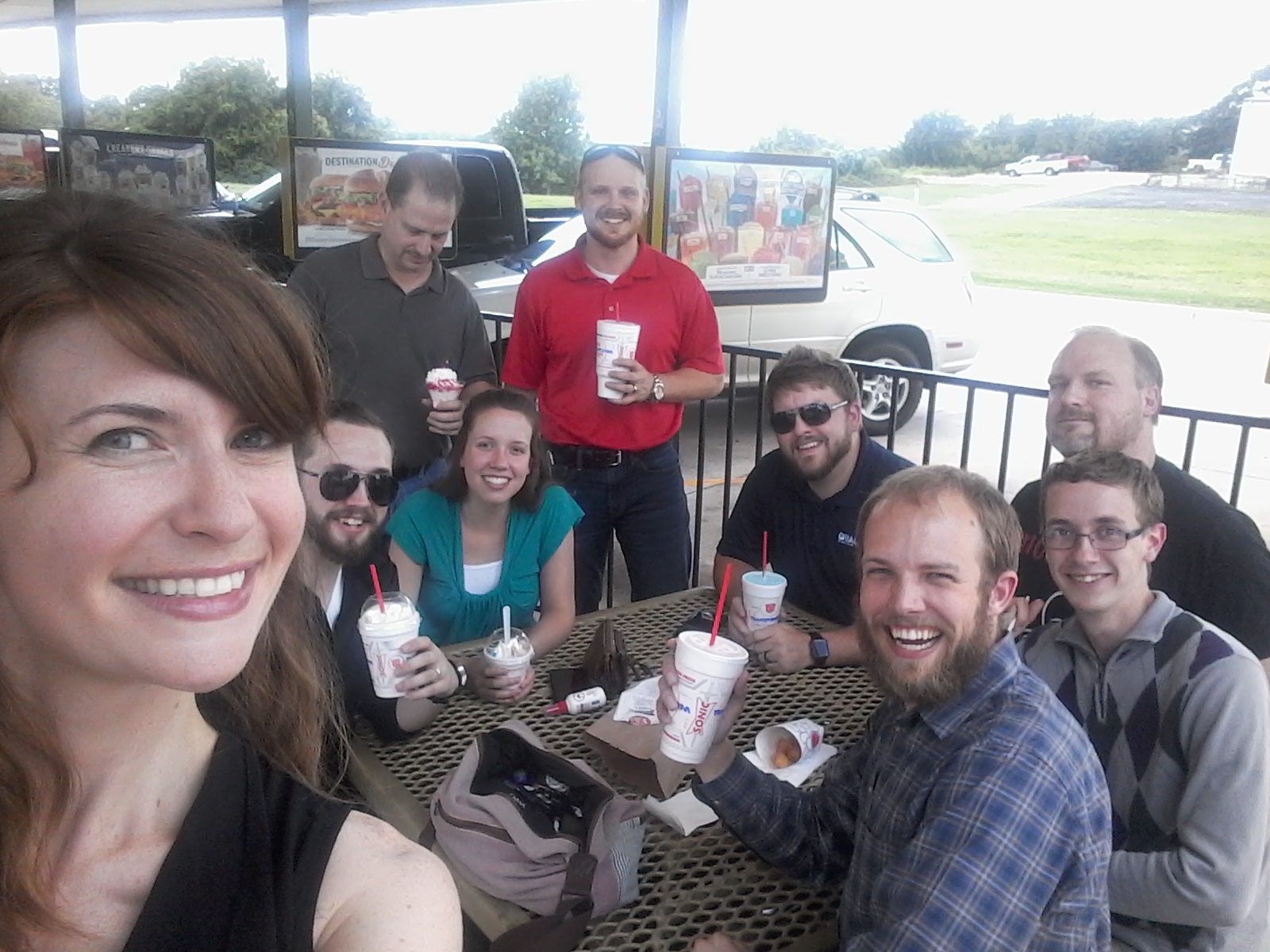


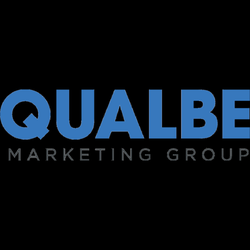




.png)




-5.png)
